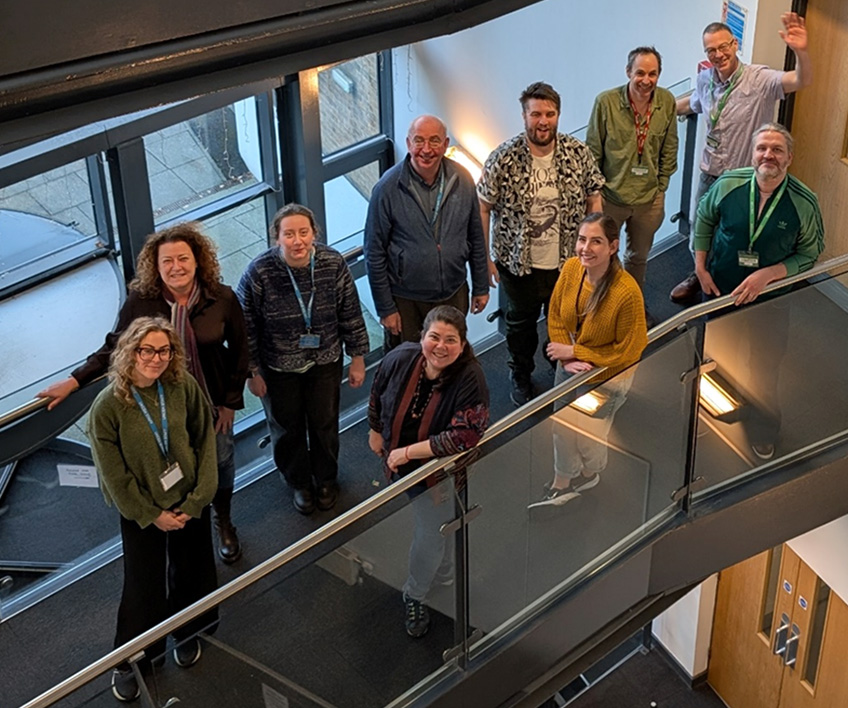The challenge
Innovations in ‘Digital Research Infrastructure’ are revolutionising data-driven approaches to environmental science. Models, AI, digital twins and IoT have transformative potential for monitoring, computational data science, and tools for sharing and visualising scientific insights.
At the same time, these same digital infrastructures also create significant and growing impacts for the environment. They emit carbon emissions in their creation, use and disposal, generate significant e-waste, and cause issues of equity and social justice.
Project overview
At the beginning of 2025, a team of experts from UK Centre for Ecology & Hydrology, Lancaster University, and Small World Consulting launched ‘Reimagining digital research infrastructure in environmental science for a sustainable future’.
Over the next three years, the team will explore this tension between the gains and impacts of digital research infrastructure in environmental science. Working across disciplines and closely with stakeholders in a series of case studies focused on ‘land use for net zero’, the project will co-design and reimagine a future of sustainable digital research.
The project draws on innovative cross-disciplinary expertise and methods to create a new methodology that supports this vision, with the aim of creating new tools, data science techniques and innovation processes that support sustainable digital research in environmental science.
Funding
The project is one of nine funded under the UKRI EPSRC call ‘Research for a digitally enabled circular economy and sustainable digital technologies’ and will be connected to the Digital Innovation and the Circular Economy (DICE) Network+ which also launched at the start of the year.
Collaborate
For more information on the project or to explore opportunities to collaborate, please contact Dr Kelly Widdicks (Principal Investigator) at KelWid@ceh.ac.uk.


